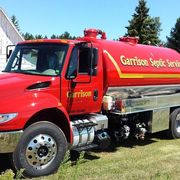
Before you have a septic system installed, you’ll need to have soil testing performed. Designed to determine if the ground around your home can support a septic system, it’s an essential first step with a lot riding on the results. If you’re new to septic systems, you may have a lot of questions about processes and procedures. Here are answers to four commonly asked questions regarding soil testing to end your confusion.
A Brief Guide to Soil Testing
What is soil testing?
Soil testing determines the size, location, and type of wastewater treatment system that may be installed on your property. The tester digs one to three holes to observe drainage capability. Multiple dig sites allow the tester to compare results across different locations and identify the best location for installing a septic system on your property.
What is a septic system soil test?
 Many people think we still do percolation tests or “perk test" this is no longer done in Wisconsin. We strictly rely on a soil interpretation commonly called a soil test. The soil test assesses whether an area is suitable for use for a conventional drain field, pressurized mound system or holding tanks. The drain field is where the wastewater from sinks, tubs, toilets, and appliances exits a tank and filters into the soil. To test for soil suitability, a licensed person holding certified soil tester license will look at the soil profile—anywhere from two to seven-feet deep, possibly more—to evaluate how the soil absorbs water; this is dependent on soil morphology; texture, color, structure, consistence, boundary's’ and roots. If the site and soil conditions are difficult to interpret, the soil tester may call in help from the local County Planning & Zoning Office or the State On-site Waste Specialist to help make the proper determination which type of septic system design will work best for wastewater treatment.
Many people think we still do percolation tests or “perk test" this is no longer done in Wisconsin. We strictly rely on a soil interpretation commonly called a soil test. The soil test assesses whether an area is suitable for use for a conventional drain field, pressurized mound system or holding tanks. The drain field is where the wastewater from sinks, tubs, toilets, and appliances exits a tank and filters into the soil. To test for soil suitability, a licensed person holding certified soil tester license will look at the soil profile—anywhere from two to seven-feet deep, possibly more—to evaluate how the soil absorbs water; this is dependent on soil morphology; texture, color, structure, consistence, boundary's’ and roots. If the site and soil conditions are difficult to interpret, the soil tester may call in help from the local County Planning & Zoning Office or the State On-site Waste Specialist to help make the proper determination which type of septic system design will work best for wastewater treatment.
When you need a septic system installed or help maintaining one, Garrison Septic Service Inc in Wisconsin Rapids, WI, will help. Their septic services include soil testing, septic tank installation, and routine septic maintenance. Learn more about what they do by visiting them online, or call them today at (715)-325-7282 to speak with a member of their staff.
About the Business
(3 reviews)
Have a question? Ask the experts!
Send your question

